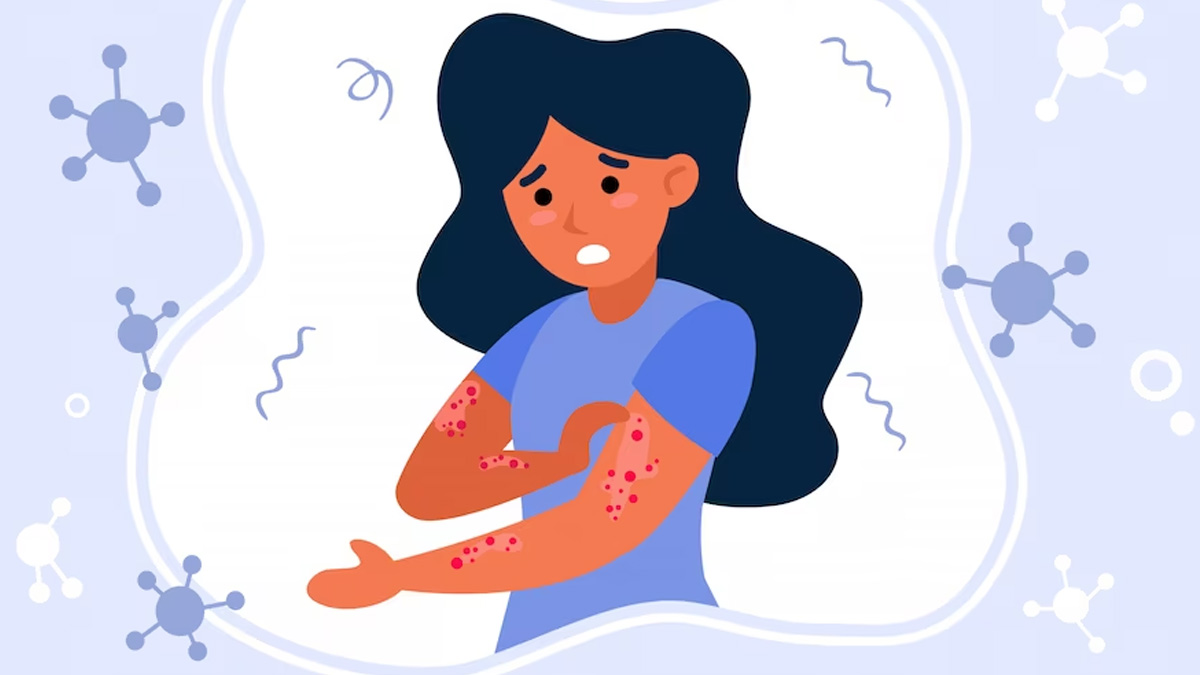
Autoimmune diseases are a complex group of conditions where the immune system, which is designed to protect our bodies from harmful invaders, starts attacking its own tissues. Some examples of autoimmune diseases are Type-1 diabetes, rheumatoid arthritis, SLE, lupus, psoriasis, eczema, and alopecia.
Table of Content:-
These diseases can affect virtually any part or process of the body, and their symptoms can be vague and often overlap with other health issues, making them exceptionally hard to diagnose. As per a study conducted by researchers from The National Institutes Of Health, 'Examining patients for potential autoimmune diseases is fraught with difficulty because not one laboratory test establishes such a diagnosis. Typically, multiple laboratory tests are needed.'
That is why you need to be aware of the signs of an autoimmune disease so you can seek timely diagnosis and management.
Persistent Fatigue

Unrelenting fatigue that doesn't improve with rest is a common sign of many autoimmune diseases.
Muscle Weakness
Weakness or difficulty with simple tasks can be related to autoimmune disorders like myasthenia gravis.
Also Read: More Than 50% People With Autoimmune Disease Experience Depression And Anxiety: Study
Skin Rashes
Various skin issues, from hives to psoriasis, can be early signs of autoimmune diseases.
Hair Loss
Unexplained hair loss, or alopecia, may be linked to autoimmune conditions like alopecia areata.
Numbness and Tingling
Persistent numbness, tingling, or burning sensations may point to multiple sclerosis or other neurological autoimmune disorders.
Joint Pain and Stiffness

Chronic joint pain and morning stiffness could indicate conditions like rheumatoid arthritis or lupus.
Digestive Problems
Conditions like celiac disease, Crohn's disease, or ulcerative colitis often present with digestive symptoms such as diarrhea, bloating, and abdominal pain.
Recurring Fevers
Frequent low-grade fevers that come and go without infection can be a sign of autoimmune diseases like systemic lupus erythematosus.
Swelling and Inflammation
Chronic inflammation and swelling of joints, organs, or other body parts can be related to autoimmune disorders.
Raynaud's Phenomenon

Raynaud's causes fingers and toes to turn white or blue in response to cold or stress, and is a common symptom of autoimmune conditions like scleroderma.
Also Read: Raynaud's Phenomenon: Symptoms, Precautions, and Treatment
Photosensitivity
Heightened sensitivity to sunlight, resulting in skin rashes or flares, is a symptom in some autoimmune diseases.
Dry Eyes and Mouth
Sjögren's syndrome is an autoimmune disorder that can lead to dry eyes and mouth.
Frequent Infections
Autoimmune diseases can weaken the immune system, making individuals more susceptible to infections.
Cognitive Issues
Memory problems, brain fog, and cognitive difficulties may be seen in autoimmune diseases like multiple sclerosis.
Thyroid Problems
Autoimmune thyroid disorders, such as Hashimoto's thyroiditis and Graves' disease, can affect metabolism and energy levels.
Unexplained Weight Changes

Sudden weight gain or loss without a clear cause can be linked to autoimmune diseases affecting the thyroid or other metabolic functions.
Anemia
Certain autoimmune diseases can lead to anemia, causing fatigue and weakness.
Also Read: Having Autoimmune Diseases Increases Cardiovascular Diseases Risk: Study
Mouth Ulcers
Recurring mouth ulcers can be a symptom of autoimmune disorders like Behçet's disease or lupus.
Eye Problems
Autoimmune diseases can affect the eyes, causing issues like uveitis or dry eye syndrome.
Breathing Difficulties
Shortness of breath or chronic cough may be associated with autoimmune lung diseases like sarcoidosis.
Seems a bit overwhelming right? There's no need to worry because you can always keep this list handy, and refer to it anytime you notice a weird symptom that is hard to explain. Although, do not let your imagination run wild after noticing every small symptom and equating it to be a sign of something sinister. This advisory is just meant to empower you with the knowledge that you need to get a timely diagnosis in case you do have an autoimmune condition. If you're experiencing persistent symptoms that align with these red flags, it's essential to consult a healthcare professional for a thorough evaluation and diagnosis. Early detection and proper management can significantly improve the quality of life for individuals living with autoimmune diseases.
Also watch this video
Read Next
From Hepatitis To Cancer, Health Conditions That Can Cause Yellowing Of The Skin Or Jaundice
How we keep this article up to date:
We work with experts and keep a close eye on the latest in health and wellness. Whenever there is a new research or helpful information, we update our articles with accurate and useful advice.
Current Version